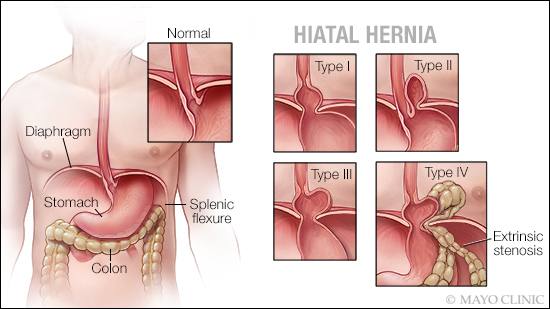Hiatal Hernia Surgery in Bahamas
Search and Compare the Best Clinics and Doctors at the Lowest Prices for Hiatal Hernia Surgery in Bahamas

Find the best clinics for Hiatal Hernia Surgery in Bahamas
No clinics available
Morocco offers the best prices Worldwide
Price: $ 520

- Home
- Bahamas
WHY US?
At Medijump, we're making medical easy. You can search, compare, discuss, and book your medical all in one place. We open the door to the best medical providers worldwide, saving you time and energy along the way, and it's all for FREE, no hidden fees, and no price markups guaranteed. So what are you waiting for?

Free

Best Price

Widest Selection

Risk-Free
What you need to know about Hiatal Hernia Surgery in Bahamas

A Hiatal Hernia is when the stomach extends up into the chest through an opening in the diaphragm. Hiatal hernia surgery is a surgical procedure to repair and return the stomach to its normal location and is normally performed when the symptoms are severe or it did not respond well to other treatments.
What does a Hiatal Hernia Surgery Procedure Involve?
Hiatal hernia surgery can be performed as a laparoscopic or open surgery; both are done under general anesthetic. With open surgery, your surgeon makes a single large incision in your abdomen and returns your stomach to where it belongs and wraps it around the lower part of the esophagus to create a tighter sphincter. With laparoscopic surgery, your surgeon will make 3 to 5 small incisions to insert surgical instruments and the laparoscope. The laparoscope transmits images of the internal organ to a monitor, guiding your surgeon through the surgery.
How Long Should I Stay in Bahamas for a Hiatal Hernia Surgery Procedure?
You may need to stay in the hospital for 1 to 3 days, but you should plan to stay in Bahamas a lot longer. Plan to stay for at least 7 to 14 days or when you get sign-off from your surgeon. During your stay, you will need to attend scheduled follow up appointments and also removal of the stitches.
What's the Recovery Time for Hiatal Hernia Surgery Procedures in Bahamas?
A full recovery may take about 10 to 12 weeks, but you can resume some of your daily routines and work within 6 to 8 weeks. If you have a physically demanding job, you probably need around 3 months before you can return. However, when the surgery is performed through a laparoscopic method, you may be able to recover in just a few weeks.
What sort of Aftercare is Required for Hiatal Hernia Surgery Procedures in Bahamas?
After a hiatal hernia surgery, you need to avoid baths, hot tubs, or pools. Instead, you can wash your body by taking a shower. You will have a restricted diet to prevent your stomach from extending, this diet involves eating four to six meals per day rather than 3 large meals, as well as avoiding food that causes gas. Your doctor will also give you coughing and breathing exercises to help strengthen your diaphragm.
What's the Success Rate of Hiatal Hernia Surgery Procedures in Bahamas?
A hiatal hernia surgery is effective and safe, with around 90% to 95% success rate. The mortality rate after the laparoscopic method is 0.57%, while the mortality rate after open surgery is about 1.0% - 2.7%. Just like any surgery, there are risks, complications, and that you need to be aware of, including bleeding, injury to internal organs, infection, diarrhea, abdominal bloating, and recurrence of the hernia.
Are there Alternatives to Hiatal Hernia Surgery Procedures in Bahamas?
Hiatal hernia surgery is effective for those that experience severe symptoms. If your symptoms are mild, you can opt for medications or home treatment.
What Should You Expect Before and After the Procedure?
Once you have fully recovered, the symptoms that you experience before the surgery, such as nausea and heartburn, should subside.
Whilst the information presented here has been accurately sourced and verified by a medical professional for its accuracy, it is still advised to consult with your doctor before pursuing a medical treatment at one of the listed medical providers
No Time?
Tell us what you're looking for and we'll reachout to the top clinics all at once
Enquire Now

Popular Procedures in Bahamas
Prices Start From $42

Prices Start From $4

Prices Start From $260

Prices Start From $520

Prices Start From $714

Recommended Medical Centers in Bahamas for procedures similar to Hiatal Hernia Surgery

- Interpreter services
- Translation service
- Religious facilities
- Medical records transfer
- Medical travel insurance
- Health insurance coordination
- TV in the room
- Safe in the room
- Phone in the room
- Private rooms for patients available
Hiatal Hernia Surgery in and around Bahamas
The Bahamas is an archipelago and country on the northwestern edge of the West Indies. Having more than 700 beautiful, palm-fringed islands, this country is known for its stunning beaches, coral reefs, crystal clear waters, a myriad of bird species, and historic towns. With everything that it has to offer, it is easy to see why the Bahamas welcomes millions of visitors each year. Besides honeymooners, divers, and beach-goers, the Bahamas is also popular among medical tourists thanks to its exceptionally high-quality services. The country’s booming medical tourism industry is driven by its highly-skilled medical professionals and state-of-the-art equipment, combined with cost-effective medical care and the opportunity to recuperate in beautiful surroundings. Cosmetic and plastic surgeries, total knee replacements, and cardiac surgeries are some of the most popular procedures in the Bahamas.
Popular Parts of the Bahamas
Nassau, the capital of the Bahamas, is one of the chief pleasure resorts in the world. Known as the Bahamas’ crown jewel, it boasts a vibrant culture, breathtaking natural landscape, and rich history. Its signature attraction is the beaches, and the most popular is Cable Beach. With striking white sands and blue waters, this peaceful and beautiful beach is the perfect place to relax and sunbathe. Freeport is also a famous destination in the Bahamas. With its diving sites and world-class restaurants, there are many things to see and do in this city. The main draw of Freeport is its beaches. Some of the most popular are Taino and Fortune Beach.
Weather and Climate in the Bahamas
The Bahamas experiences a tropical climate and the average temperatures will stay the same all year round, between 24°C - 29°C. There are generally two seasons in the country: dry and wet. The dry season, from November to June, is mostly sunny and pleasant. However, it tends to be very crowded during this season, especially from mid-December to mid-April. The wet season spans from July to November. This season sees an increase in rainfall, but there are still many sunny days. The Bahamas also has a hurricane season, which lasts from June to November.
Getting around in the Bahamas
The largest international gateway to the Bahamas is Lynden Pindling International Airport, which is located near the capital city of Nassau, in western New Providence Island. It serves flights to numerous major cities in the Americas and Europe, including New York, Atlanta, and London. The easiest and quickest way to get around is by plane, especially to travel from one island to another. In Nassau and Freeport, the main transport option is the jitneys (private minibusses). In Out Islands, no public transport is available. The best way to get around inside the islands is by taxis or rental cars. However, taxis are often quicker and easier than driving on your own. Ferries and water taxis are all available.
Tourist Visas in the Bahamas
Citizens of 120 countries, including all EU countries, Australia, Canada, China, the US, and the UK, can visit and stay in the Bahamas for up to 3 months without a visa unless stated otherwise. Nationals not listed in the visa-exempt agreement need to obtain a visa to be able to visit the Bahamas.
Additional Information
- Local Currency: The Bahamian dollar (BSD) is the official currency, which is equivalent in value to the US dollar. Bahamian dollar and US dollars are accepted interchangeably in the country.
- Money & Payments: ATMs are widely available on the major islands and can usually be found in airport terminals and at banks. Credit cards are widely accepted. Tipping is expected, usually around 15% for taxi drivers and waiters, and $1-$3 for bag porters and hotel maids.
- Local Language: English is the official language in the Bahamas.
- Local Culture and Religion: Bahamians are deeply religious and the biggest religion is Christianity. However, the constitution guarantees freedom of expression, and other religions are freely practiced.
- Public holidays: Some of the most important holidays in the Bahamas are Whit Monday, National Heroes Day, Randol Fawkes Labour Day, Emancipation Day, Independence Day, Christmas Day, Boxing Day, New Year’s Day, and Majority Rule Day.
Popular Searches
- Plastic Surgery in Thailand
- Dental Implants in Thailand
- Hair Transplant in Thailand
- Breast Augmentation Thailand
- Gastric Sleeve in Thailand
- Gender Reassignment Surgery in Thailand
- Laser Hair Removal in Bangkok
- Botox in Bangkok
- Dermatology in Bangkok
- Breast Augmentation in Bangkok
- Coolsculpting in Bangkok
- Veneers in Turkey
- Hair Transplant in Turkey
- Rhinoplasty in Turkey
- Stem Cell Therapy in Mexico
- Rhinoplasty in Mexico
- Liposuction in Mexico
- Coolsculpting in Tijuana
- Rhinoplasty in Korea
- Scar Removal in Korea
- Gastric Sleeve in Turkey
- Bone Marrow Transplant in India
- Invisalign in Malaysia
- Plastic Surgery in the Dominican Republic
- Tummy Tuck in the Dominican Republic
- Plastic and Cosmetic Surgery in Poland
- Rhinoplasty in Poland
- Hair Implant in Poland
- Dental Implants in Poland
- IVF in Turkey